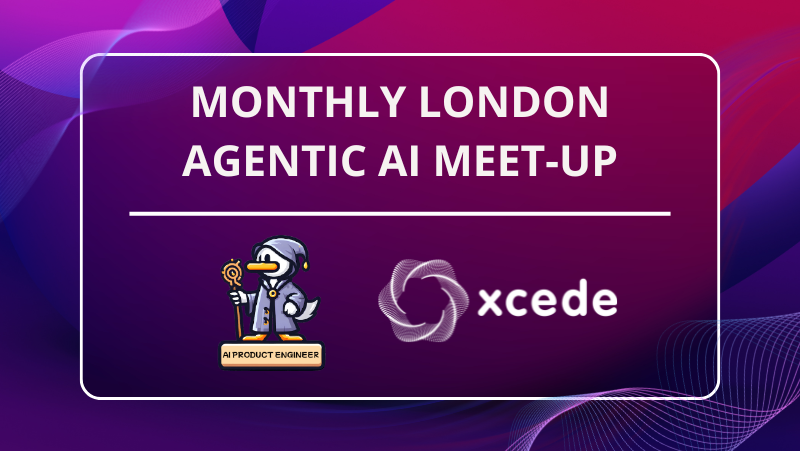insights & resources
Scroll to discover

News
Xcede Retains Feefo Platinum Status for the 5th Consecutive Year
We’re delighted to announce that we have retained our Feefo Platinum status for the 5th year in a row. This reflects our long-standing commitment to delivering excellent service. The Feefo Platinum Trusted Service Award is based on verified feedback from real clients and candidates, recognising companies that consistently achieve a 4.5/5 rating or above for 3 consecutive years. Retaining Platinum status for five years highlights not only consistency, but a culture of continuous improvement. At Xcede, we believe great recruitment is built on expertise, transparency, and trust. Our teams across Data, AI & Machine Learning, Software, Product, Cloud, and Cyber work closely...
categories
Show All
Blogs
Reports
Events
Podcast
News

News
3 min read
Xcede Retains Feefo Platinum Status for the 5th Consecutive Year

Events
4 min read
London Monthly Agentic AI Meet-Up

Blogs
6 min read
Top Cyber Security Skills in Demand

Reports
Xcede DACH 2025/26 Salary Guide

News
2 min read
Xcede Shortlisted at the British Recruitment Awards 2025

Blogs
6 min read
The Cloud Skills Gap: Understanding it and Finding Solutions

News
0Xcede Shortlisted at the Recruiter Awards

Reports
AI Skills Continue to Command Higher Salaries in 2025

Reports
Xcede 2025 UK Salary Guide

News
3 min read
Xcede Retains Feefo Platinum Trusted Service Award for the 4th Year

News
Cloud Engineer vs Software Engineer: Making the Right Career Choice in 2025

News
4 min read
Beware of Recruitment Scams
1 - 5